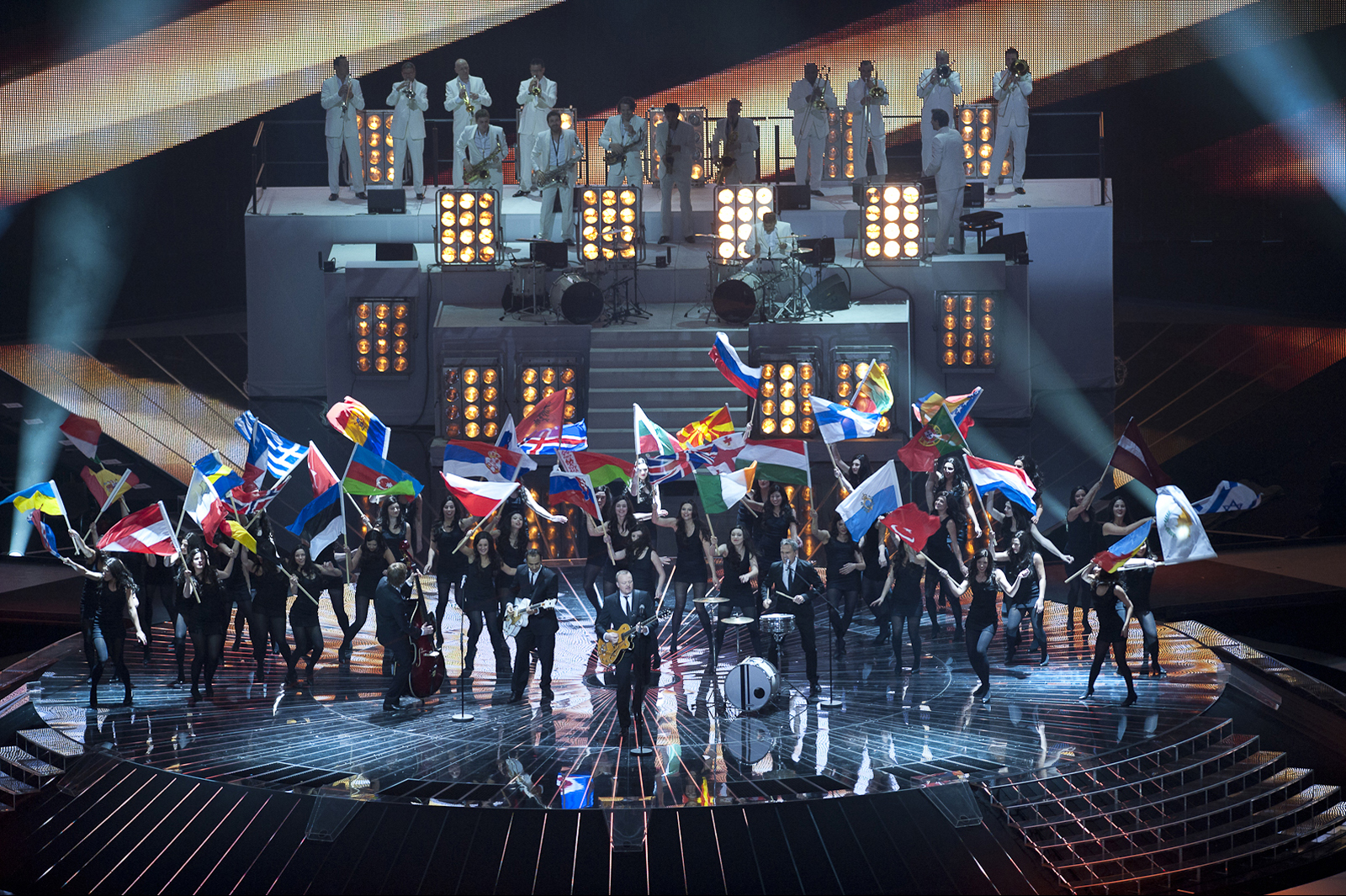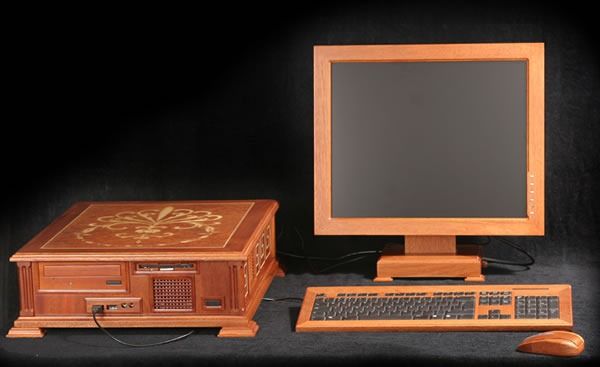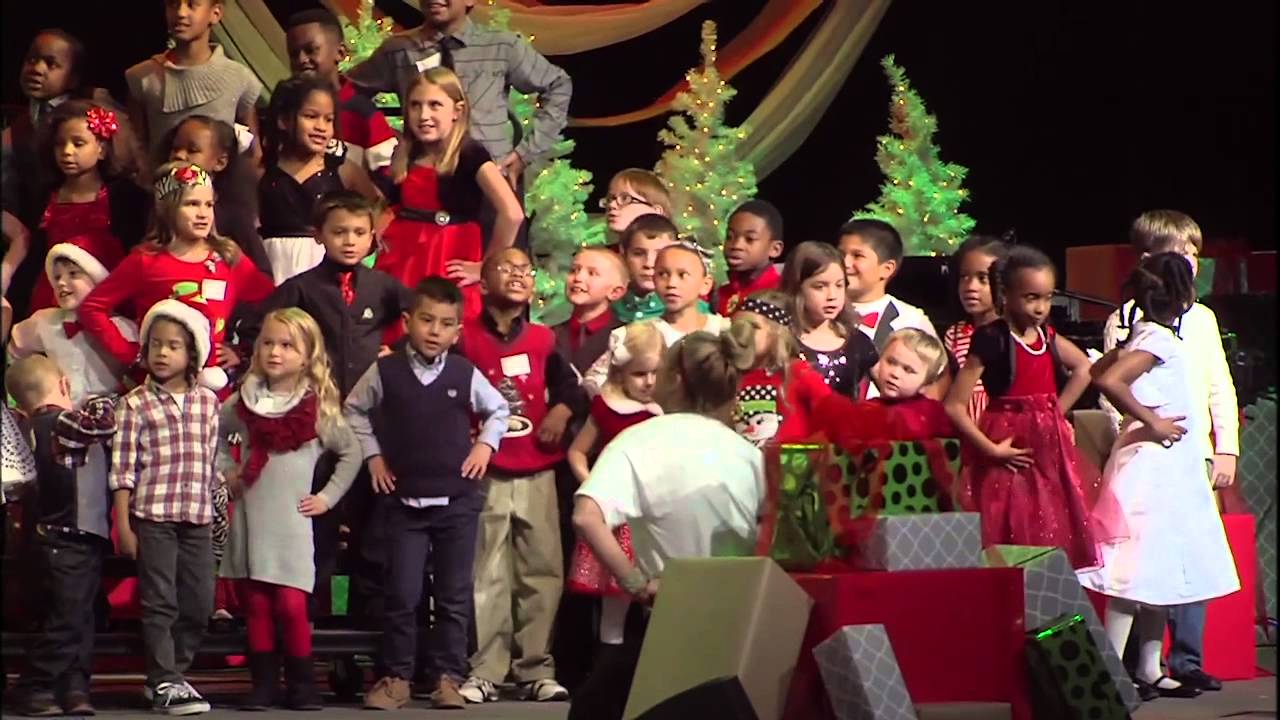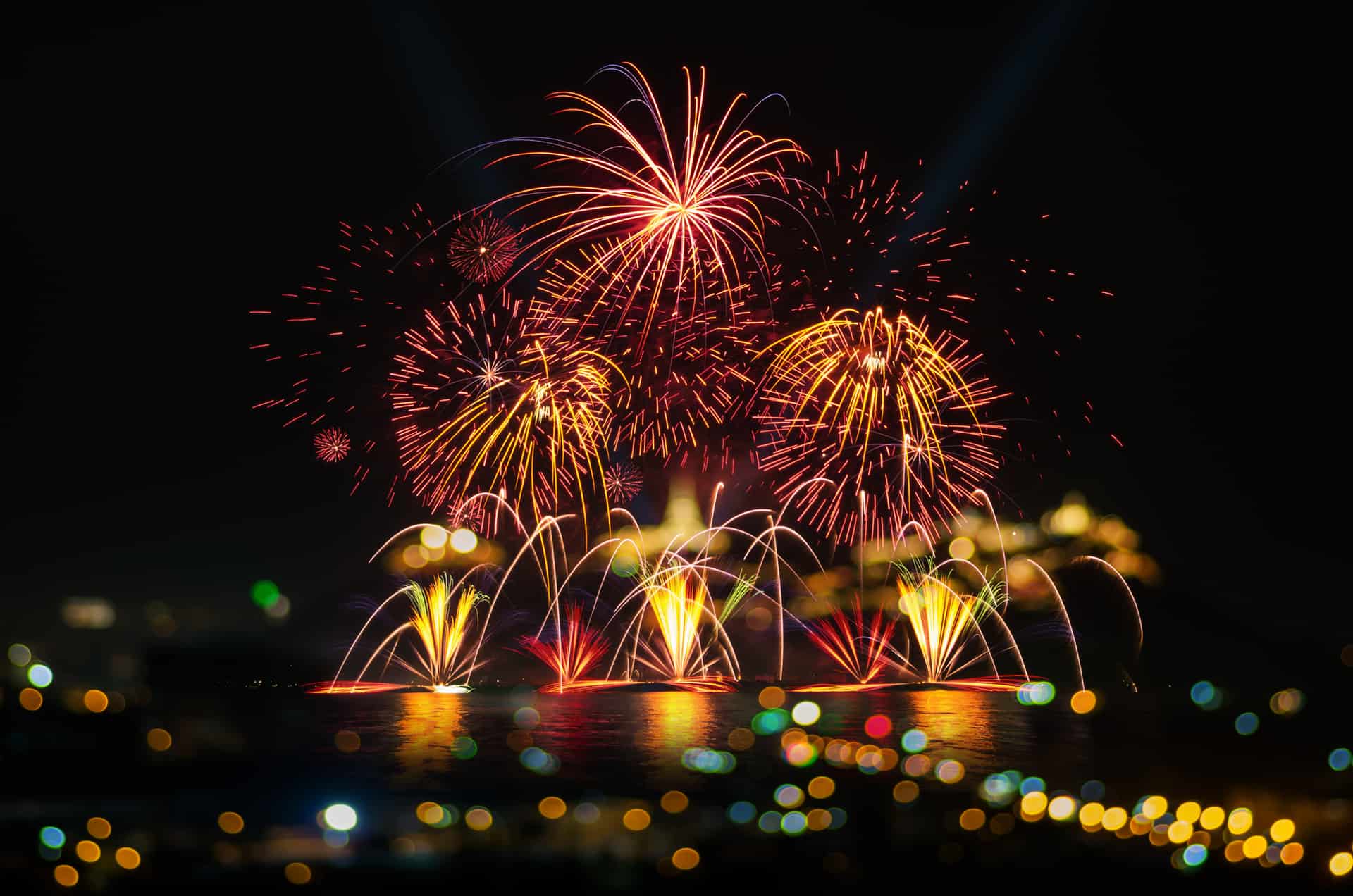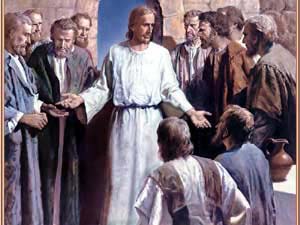If you’re from Europe, you know what the Eurovision song contest is. Also, you probably watched it when you were little.
But did you know when was the first Eurovision ever held and who created it?
Contents
What is Eurovision Song Contest?
The Eurovision Song Contest (abbreviated Eurosong) is an annual song competition. A large number of countries cover it by television broadcasts.

By Frédéric de Villamil from Paris, France – Let the show begin!, CC BY-SA 2.0.
Who Started Eurosong?
Director general of Swiss public television, Marcel Bezençon, invented the contest on the model of the Italian Sanremo Music Festival.
In the beginning, it featured performers who came mainly from Europe. Nonetheless, it has since spread to 50 countries (as of 2019).
However, you need to meet specific requirements for a Eurovision entry.
Who Can Participate in the Eurosong?
Eurosong is open exclusively to active members of the European Broadcasting Union (the EBU). In other words, these members are broadcasters either from countries in the European Broadcasting Area or broadcasters from countries outside the European Area but members of the Council of Europe.

By Sims2aholic8 (Michael) (talk) –
Transferred from en.wikipedia to Commons by Common Good using CommonsHelper., Public Domain.
All must be members of the International Telecommunication Union. It includes countries in Europe, Asia, and Africa.
Consequently, the competition spread to other continents, including South Africa, Australia, Canada, South Korea, the United States, New Zealand, and China.
Since 2003, the Junior Eurovision Song Contest has also been held every year, modelled on the Eurosong Contest, with its first Junior Eurovision Song Contest winner Dino Jelusic.
When Did the First-Ever Eurovision Song Contest Take Place?
The first-ever Eurovision Song Contest took place on Thursday, May 24th, 1956, at the Teatro Kursaal in Lugano, Switzerland. It is 27 years older than the first Academy Awards (Oscars) ever.
Seven countries competed for the grand prize: Germany, Belgium, France, Italy, Luxembourg, the Netherlands, and Switzerland.

By Sims2aholic8 – Own work, Public Domain.
In addition, Austria, Denmark, and the United Kingdom wanted to participate but were unable to meet the deadline for registration and had to abstain. All three, however, broadcasted the event.
Who Won the First-Ever Eurovision Song Contest?
The first-ever Eurovision winner came from the host country, Switzerland. Lys Assia won the competition with the song Refrain.
What Are the Rules of Eurosong?
The broadcasters organize and form the selections for the songs. People or the participating broadcasters then choose which song will go to the Eurosong contest.
The songs selected must not have been published before September 1st of the previous year, and their maximum duration is three minutes.
The lyrics of the songs, as well as their presentation, can not undermine either the Competition or the EBU. It is forbidden to include any word or gesture of a political or similar nature.
Moreover, it is prohibited to include any insult or unacceptable language. Lastly, Eurovision songs must not include advertising messages of any kind.
Likewise, as far as the presentation goes, each one can have a maximum of six people on stage. No living animal can be brought on stage, and participating artists must perform their song live.
Moreover, from the first Eurovision ever to this day, the musicians must sing the song live. In other words, they have to come without a prerecorded soundtrack.
Eurovision List of Countries Participants in 2020
The next contest takes place in Rotterdam. The Eurovision 2020 winner will there receive the prize at the Eurovision final.
The EBU released the official list for Eurovision participating countries for 2020:
- Albania
- Armenia
- Australia
- Austria
- Azerbaijan
- Belarus
- Belgium
- Bulgaria
- Croatia
- Cyprus
- Czech Republic
- Denmark
- Estonia
- Finland
- France
- FYR Macedonia
- Germany
- Georgia
- Greece
- Iceland
- Ireland
- Israel
- Italy
- Latvia
- Lithuania
- Malta
- Moldova
- The Netherlands
- Norway
- Poland
- Portugal
- Romania
- Russia
- San Marino
- Serbia
- Slovenia
- Spain
- Sweden
- Switzerland
- Ukraine
- United Kingdom
The List of Eurosong Winners from the Past Five Years
Since the Eurovision song contest is a song competition held every year, many artists performed in it.
The last five years’ winners were Måns Zelmerlöw from Sweden, who was the Eurosong 2015 winner, Jamala from Ukraine who was the Eurosong 2016 winner, Salvador Sobral from Portugal as the Eurosong 2017 winner, Netta from Israel as the Eurosong 2018 winner and Duncan Laurence from the Netherlands as the Eurovision 2019 winner.
Why Is the First-Ever Eurovision Important?
Lastly, The first-ever Eurosong brought a sense of community to the people. All contestants sing live in front of thousands of people in the studio and millions watch them in the comfort of their living room.
In conclusion, it’s the time when the whole of Europe feels united and enjoys good music.
